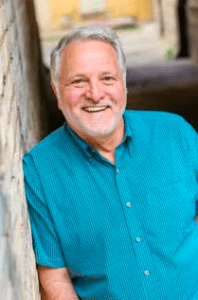“An Act of Pure Evil,” by John Frye
“Evil is not explained but surrounded.” —Eugene H. Peterson
 Our TVs, iPhones, laptops, radios, and social media stagger under the horror of the evil violently inflicted on innocent concert goers in Las Vegas last Sunday evening. The numbers of dead and wounded by a mass killing are historic. News at this writing still reports that investigators have not discovered the motive that prompted Stephen Paddock to commit this horrendous homeland massacre.
Our TVs, iPhones, laptops, radios, and social media stagger under the horror of the evil violently inflicted on innocent concert goers in Las Vegas last Sunday evening. The numbers of dead and wounded by a mass killing are historic. News at this writing still reports that investigators have not discovered the motive that prompted Stephen Paddock to commit this horrendous homeland massacre.
Predictably, and sadly, before the dead bodies cooled and families processed the searing trauma, political advocates for gun rights and for gun control began wrangling about US policy issues. Ed Uszynski writing about the Take a Knee issue, observes, “Our national inability to have civil discourse around difficult subjects is alarming.” The availability of guns built only to kill people is a very needed national conversation in view of the escalating number of tragic events in which automatic weapons are used. Is this the direction the church will turn? To politics? To shouting across FaceBook posts?
In his book Reversed Thunder, Eugene H. Peterson writes about “The Last Word on Evil” (chapter 6). The chapter is an exploration of Revelation 6-7. Peterson opens the chapter by quoting Annie Dillard who asks “the chief theological question of all time—‘What in the Sam Hill is going on here anyway?’” (72). Peterson himself observes, “When we experience evil in any form it is felt as total. It blots out everything else” (73). Later, Peterson asks, “The question every person of faith must face is this, Do God’s love and redemption work in this history in which I live?” (75). Must politics usurp God in the church? Followers of Jesus, paraphrasing Peterson, do not naively believe “the world is a mighty fine place after all,” and Christians have “no illusions abut the depth of depravity in themselves or in the world,” but know, on the other hand, “more about what is wrong with the world than any other, and [are], at the same time less cynical or despairing about it” (81).
With this in mind, rather than running to political policy first (though it has its place), the church turns to a Person and to prayer. Evil is, in Apostle John’s sweeping vision, bracketed between Christ and prayer (85). Christians live, Peterson insists, in the “real world” under the Lordship of the Lamb (Revelation 5) and those believers influence global changes through prayer offered often in the midst of suffering (Revelation 8). The great evils of Revelation 6 do occur throughout human history, but these evils are not infinite and do not have the final word. “But nothing evil has the staying power of goodness. The energy of evil cannot sustain itself for long; it loses momentum, totters, stops” (77). God rules. “But the Bible does not provide an explanation of evil—rather, it defines a context: all evil takes place in an historical arena bounded by Christ and prayer” (85). Evil is a “finite episode and not a total triumph” (85).
With these assurances, we grieve the carnage of hideous evil, we seek the face of Christ (“Lord, have mercy. Christ, have mercy”), and we pray God’s kingdom come. Confident in the face of evil, the church is prepared to address the gun policy issues without bitterness and anger and without idolizing politics.












